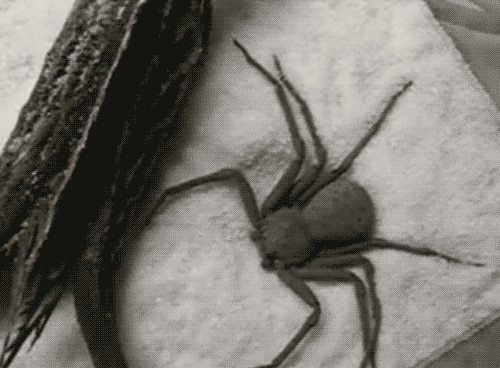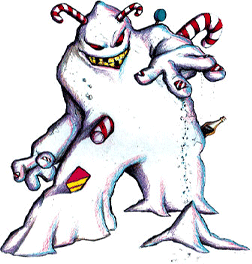Sugar is the devil!
Replies
-
I got to this point where directly after I would eat I would crave like crazy something sweet. It was pretty ridiculous how bad the cravings got and that really added to my over consumption of calories. I could go through Oreos like a champ. Sometimes to the point where I was blindly eating them and before I knew it I had a sleeve (or two) down.
I knew for weight loss I was going to have to just get those things out of the house and so I got rid of everything. The first week was brutal I'm not going to lie. I quit smoking almost ten years ago and I swear it was similar to the first week without a cigarette. MamaPeach pointed out that after a period of time of avoiding/restricting the sugar is almost too much and shes right. Stuff I used to LOVE is just too much now. She also mentioned high quality treats and I think she's on the money with that too.
I don't do soda at all anymore because it's a gateway for me but if I want something sweet I don't avoid it I just don't make it easy for myself. If I'm out to dinner and I want something my family splits it. I am to the point where I can have a bag of Kisses or something in the house and not down it. If I want something I tell myself to run laundry up and/or down the stairs a few times and THEN I can have a treat. Yogurt and fruit is typically enough to satisfy the cravings. You could also try to snack more on the sweeter fruits like mango or pineapple. Frozen pineapple is fantastic, especially in the summer!
If you don't have self control don't keep it around. Treat yourself occasionally. I chew a lot of gum and that helps the cravings pass. Also distraction is HUGE for me! If I start getting a craving and I'm at my calorie/macro levels for the day I'll do something like my nails, game, troll online. Distracts my brain and the craving passes!
Best of luck. I can appreciate what you're going through!
0 -
I don't eat much sugar..because I can't. What are your protein and fat macros looking like? I find upping those help to cut down on carb cravings.
If you really think sugar is the devil..dont eat it. artificial sweeteners have not been proven to cause cancer.
Have you considered Stevia?
Cant tell if troll thread or serious.0 -
The point of my question has nothing to do with proving Splenda causes cancer but, bc people are commenting about it here are some fun facts:
Sucralose: What are the cons?
The most misunderstood fact about sucralose is that it is nothing like sugar even though the marketing implies that it is. Sucralose was actually discovered while trying to create a new insecticide. It may have started out as sugar, but the final product is anything but sugar. According to the book Sweet Deception, sucralose is made when sugar is treated with trityl chloride, acetic anhydride, hydrogen chlorine, thionyl chloride, and methanol in the presence of dimethylformamide, 4-methylmorpholine, toluene, methyl isobutyl ketone, acetic acid, benzyltriethlyammonium chloride, and sodium methoxide, making it unlike anything found in nature. If you read the fine print on the Splenda web site, it states that "although sucralose has a structure like sugar and a sugar-like taste, it is not natural." The presence of chlorine is thought to be the most dangerous component of sucralose. Chlorine is considered a carcinogen and has been used in poisonous gas, disinfectants, pesticides, and plastics. The digestion and absorption of sucralose is not clear due to a lack of long-term studies on humans. The majority of studies were done on animals for short lengths of time. The alleged symptoms associated with sucralose are gastrointestinal problems (bloating, gas, diarrhea, nausea), skin irritations (rash, hives, redness, itching, swelling), wheezing, cough, runny nose, chest pains, palpitations, anxiety, anger, moods swings, depression, and itchy eyes. The only way to be sure of the safety of sucralose is to have long-term studies on humans done.
Ok, no more posts from me on that subject. I don't want to debate about it lol!
-1 -
Are you diabetic? Or is it that you just find yourself binging on sugar laden foods? Moderation is key...no reason to cut out a whole food group.
Your body cannot tell the difference between different kinds of sugar but I'd still recommend eating a piece of fruit when a sugar craving hits...it's sweet and provides other nutrients not found in typical "junk" food.0 -
-
Ok, so I'm REALLY trying to eliminate excess sugar from my diet bc that's my biggest problem but, I find it extremely hard! I crave candy and icecream all day long- esp when I tell my self I can't have it lol. Any help? When do the cravings stop? I don't eat fake sugars so please don't suggest substituting Splenda or anything with sweetnlow in it- I know they cause cancer and I won't put that crap in my body. I just want natural things or ways to help eliminate excess sugar cravings! HELP! Lol
Samantha
AHAHAHAHAHAHAHAHAHAHAHAHAHAHAHAHA
You'll fit in well round here.0 -
The point of my question has nothing to do with proving Splenda causes cancer but, bc people are commenting about it here are some fun facts:
Sucralose: What are the cons?
The most misunderstood fact about sucralose is that it is nothing like sugar even though the marketing implies that it is. Sucralose was actually discovered while trying to create a new insecticide. It may have started out as sugar, but the final product is anything but sugar. According to the book Sweet Deception, sucralose is made when sugar is treated with trityl chloride, acetic anhydride, hydrogen chlorine, thionyl chloride, and methanol in the presence of dimethylformamide, 4-methylmorpholine, toluene, methyl isobutyl ketone, acetic acid, benzyltriethlyammonium chloride, and sodium methoxide, making it unlike anything found in nature. If you read the fine print on the Splenda web site, it states that "although sucralose has a structure like sugar and a sugar-like taste, it is not natural." The presence of chlorine is thought to be the most dangerous component of sucralose. Chlorine is considered a carcinogen and has been used in poisonous gas, disinfectants, pesticides, and plastics. The digestion and absorption of sucralose is not clear due to a lack of long-term studies on humans. The majority of studies were done on animals for short lengths of time. The alleged symptoms associated with sucralose are gastrointestinal problems (bloating, gas, diarrhea, nausea), skin irritations (rash, hives, redness, itching, swelling), wheezing, cough, runny nose, chest pains, palpitations, anxiety, anger, moods swings, depression, and itchy eyes. The only way to be sure of the safety of sucralose is to have long-term studies on humans done.
Ok, no more posts from me on that subject. I don't want to debate about it lol!
I'm curious, what is the source for this info? I'd like to go read, but you did not list any links.
0 -
Bookmarking this thread.
Next time someone claims that nobody ever says that "sugar is the devil," I will link here.
Of course, this thread will surely be nuked by then.0 -
0
-
 0
0 -
kamakazeekim wrote: »Are you diabetic? Or is it that you just find yourself binging on sugar laden foods? Moderation is key...no reason to cut out a whole food group.
Your body cannot tell the difference between different kinds of sugar but I'd still recommend eating a piece of fruit when a sugar craving hits...it's sweet and provides other nutrients not found in typical "junk" food.
I just crave sugar...A LOT! Lol. I don't plan on cutting it out altogether, I just want to stop craving candy lol0 -
tincanonastring wrote: »Rawr rawr...I'm the sugar devil. Rawr.

**bites arms off sugar devil**
Sugar devil runs around while screaming: "Leana is the devil!!!!"
That's my defense mechanism against evil chocolate bunnies! Just bite of their heads so those *kitten* can't get me!0 -
trityl chloride, acetic anhydride, hydrogen chlorine, thionyl chloride, and methanol in the presence of dimethylformamide, 4-methylmorpholine, toluene, methyl isobutyl ketone, acetic acid, benzyltriethlyammonium chloride, and sodium methoxide,
I'm going to go out on a limb and guess that you have no clue what any of these are.
Also: hydrogen chlorine? Nope.
0 -
She doesn't want to debate it, lol. If the Internet says it's true, then it must beThe point of my question has nothing to do with proving Splenda causes cancer but, bc people are commenting about it here are some fun facts:
Sucralose: What are the cons?
The most misunderstood fact about sucralose is that it is nothing like sugar even though the marketing implies that it is. Sucralose was actually discovered while trying to create a new insecticide. It may have started out as sugar, but the final product is anything but sugar. According to the book Sweet Deception, sucralose is made when sugar is treated with trityl chloride, acetic anhydride, hydrogen chlorine, thionyl chloride, and methanol in the presence of dimethylformamide, 4-methylmorpholine, toluene, methyl isobutyl ketone, acetic acid, benzyltriethlyammonium chloride, and sodium methoxide, making it unlike anything found in nature. If you read the fine print on the Splenda web site, it states that "although sucralose has a structure like sugar and a sugar-like taste, it is not natural." The presence of chlorine is thought to be the most dangerous component of sucralose. Chlorine is considered a carcinogen and has been used in poisonous gas, disinfectants, pesticides, and plastics. The digestion and absorption of sucralose is not clear due to a lack of long-term studies on humans. The majority of studies were done on animals for short lengths of time. The alleged symptoms associated with sucralose are gastrointestinal problems (bloating, gas, diarrhea, nausea), skin irritations (rash, hives, redness, itching, swelling), wheezing, cough, runny nose, chest pains, palpitations, anxiety, anger, moods swings, depression, and itchy eyes. The only way to be sure of the safety of sucralose is to have long-term studies on humans done.
Ok, no more posts from me on that subject. I don't want to debate about it lol!
What is the source for this info?
0 -
-
She doesn't want to debate it, lol. If the Internet says it's true, then it must beThe point of my question has nothing to do with proving Splenda causes cancer but, bc people are commenting about it here are some fun facts:
Sucralose: What are the cons?
The most misunderstood fact about sucralose is that it is nothing like sugar even though the marketing implies that it is. Sucralose was actually discovered while trying to create a new insecticide. It may have started out as sugar, but the final product is anything but sugar. According to the book Sweet Deception, sucralose is made when sugar is treated with trityl chloride, acetic anhydride, hydrogen chlorine, thionyl chloride, and methanol in the presence of dimethylformamide, 4-methylmorpholine, toluene, methyl isobutyl ketone, acetic acid, benzyltriethlyammonium chloride, and sodium methoxide, making it unlike anything found in nature. If you read the fine print on the Splenda web site, it states that "although sucralose has a structure like sugar and a sugar-like taste, it is not natural." The presence of chlorine is thought to be the most dangerous component of sucralose. Chlorine is considered a carcinogen and has been used in poisonous gas, disinfectants, pesticides, and plastics. The digestion and absorption of sucralose is not clear due to a lack of long-term studies on humans. The majority of studies were done on animals for short lengths of time. The alleged symptoms associated with sucralose are gastrointestinal problems (bloating, gas, diarrhea, nausea), skin irritations (rash, hives, redness, itching, swelling), wheezing, cough, runny nose, chest pains, palpitations, anxiety, anger, moods swings, depression, and itchy eyes. The only way to be sure of the safety of sucralose is to have long-term studies on humans done.
Ok, no more posts from me on that subject. I don't want to debate about it lol!
What is the source for this info?
That's kinda what I was getting at. I was curious to see which organic blog it came from.0 -
-
Big Tinfoil.The point of my question has nothing to do with proving Splenda causes cancer but, bc people are commenting about it here are some fun facts:
Sucralose: What are the cons?
The most misunderstood fact about sucralose is that it is nothing like sugar even though the marketing implies that it is. Sucralose was actually discovered while trying to create a new insecticide. It may have started out as sugar, but the final product is anything but sugar. According to the book Sweet Deception, sucralose is made when sugar is treated with trityl chloride, acetic anhydride, hydrogen chlorine, thionyl chloride, and methanol in the presence of dimethylformamide, 4-methylmorpholine, toluene, methyl isobutyl ketone, acetic acid, benzyltriethlyammonium chloride, and sodium methoxide, making it unlike anything found in nature. If you read the fine print on the Splenda web site, it states that "although sucralose has a structure like sugar and a sugar-like taste, it is not natural." The presence of chlorine is thought to be the most dangerous component of sucralose. Chlorine is considered a carcinogen and has been used in poisonous gas, disinfectants, pesticides, and plastics. The digestion and absorption of sucralose is not clear due to a lack of long-term studies on humans. The majority of studies were done on animals for short lengths of time. The alleged symptoms associated with sucralose are gastrointestinal problems (bloating, gas, diarrhea, nausea), skin irritations (rash, hives, redness, itching, swelling), wheezing, cough, runny nose, chest pains, palpitations, anxiety, anger, moods swings, depression, and itchy eyes. The only way to be sure of the safety of sucralose is to have long-term studies on humans done.
Ok, no more posts from me on that subject. I don't want to debate about it lol!
I'm curious, what is the source for this info? I'd like to go read, but you did not list any links.
0 -
The point of my question has nothing to do with proving Splenda causes cancer but, bc people are commenting about it here are some fun facts:
Sucralose: What are the cons?
The most misunderstood fact about sucralose is that it is nothing like sugar even though the marketing implies that it is. Sucralose was actually discovered while trying to create a new insecticide. It may have started out as sugar, but the final product is anything but sugar. According to the book Sweet Deception, sucralose is made when sugar is treated with trityl chloride, acetic anhydride, hydrogen chlorine, thionyl chloride, and methanol in the presence of dimethylformamide, 4-methylmorpholine, toluene, methyl isobutyl ketone, acetic acid, benzyltriethlyammonium chloride, and sodium methoxide, making it unlike anything found in nature. If you read the fine print on the Splenda web site, it states that "although sucralose has a structure like sugar and a sugar-like taste, it is not natural." The presence of chlorine is thought to be the most dangerous component of sucralose. Chlorine is considered a carcinogen and has been used in poisonous gas, disinfectants, pesticides, and plastics. The digestion and absorption of sucralose is not clear due to a lack of long-term studies on humans. The majority of studies were done on animals for short lengths of time. The alleged symptoms associated with sucralose are gastrointestinal problems (bloating, gas, diarrhea, nausea), skin irritations (rash, hives, redness, itching, swelling), wheezing, cough, runny nose, chest pains, palpitations, anxiety, anger, moods swings, depression, and itchy eyes. The only way to be sure of the safety of sucralose is to have long-term studies on humans done.
Ok, no more posts from me on that subject. I don't want to debate about it lol!
You realize chlorine is part of table salt right? You use salt. Right? Are you going to die from chlorine in salt?
Whatever this drivel is you quoted, it has nothing to do with actual reality. It sounds like something the Food Babe would post
0 -
herrspoons wrote: »Look, in the off chance this heads off a ten page gif laden argument, it's simple - if you find it difficult to resist temptation then keep sugary stuff out the house. If you can exercise enough willpower to moderate your intake then have some lying around.
OK now that this is out of the way can we spam this thread with cat gifs?
This cat has eaten wayyyy too much devilish sugar:
0 -
stevencloser wrote: »
Big Tinfoil.The point of my question has nothing to do with proving Splenda causes cancer but, bc people are commenting about it here are some fun facts:
Sucralose: What are the cons?
The most misunderstood fact about sucralose is that it is nothing like sugar even though the marketing implies that it is. Sucralose was actually discovered while trying to create a new insecticide. It may have started out as sugar, but the final product is anything but sugar. According to the book Sweet Deception, sucralose is made when sugar is treated with trityl chloride, acetic anhydride, hydrogen chlorine, thionyl chloride, and methanol in the presence of dimethylformamide, 4-methylmorpholine, toluene, methyl isobutyl ketone, acetic acid, benzyltriethlyammonium chloride, and sodium methoxide, making it unlike anything found in nature. If you read the fine print on the Splenda web site, it states that "although sucralose has a structure like sugar and a sugar-like taste, it is not natural." The presence of chlorine is thought to be the most dangerous component of sucralose. Chlorine is considered a carcinogen and has been used in poisonous gas, disinfectants, pesticides, and plastics. The digestion and absorption of sucralose is not clear due to a lack of long-term studies on humans. The majority of studies were done on animals for short lengths of time. The alleged symptoms associated with sucralose are gastrointestinal problems (bloating, gas, diarrhea, nausea), skin irritations (rash, hives, redness, itching, swelling), wheezing, cough, runny nose, chest pains, palpitations, anxiety, anger, moods swings, depression, and itchy eyes. The only way to be sure of the safety of sucralose is to have long-term studies on humans done.
Ok, no more posts from me on that subject. I don't want to debate about it lol!
I'm curious, what is the source for this info? I'd like to go read, but you did not list any links.
Oh I have no doubt lol0 -
The spider gif is just awful! It's more terrifying than the sugar devil! Skeeved out!
0 -
0
-
medicinenet.com, maybe?
But...The FDA reviewed studies in human beings and animals and determined that sucralose did not pose carcinogenic, reproductive, or neurological risk to human beings.
So.... Derp?0 -
The point of my question has nothing to do with proving Splenda causes cancer but, bc people are commenting about it here are some fun facts:
Sucralose: What are the cons?
The most misunderstood fact about sucralose is that it is nothing like sugar even though the marketing implies that it is. Sucralose was actually discovered while trying to create a new insecticide. It may have started out as sugar, but the final product is anything but sugar. According to the book Sweet Deception, sucralose is made when sugar is treated with trityl chloride, acetic anhydride, hydrogen chlorine, thionyl chloride, and methanol in the presence of dimethylformamide, 4-methylmorpholine, toluene, methyl isobutyl ketone, acetic acid, benzyltriethlyammonium chloride, and sodium methoxide, making it unlike anything found in nature. If you read the fine print on the Splenda web site, it states that "although sucralose has a structure like sugar and a sugar-like taste, it is not natural." The presence of chlorine is thought to be the most dangerous component of sucralose. Chlorine is considered a carcinogen and has been used in poisonous gas, disinfectants, pesticides, and plastics. The digestion and absorption of sucralose is not clear due to a lack of long-term studies on humans. The majority of studies were done on animals for short lengths of time. The alleged symptoms associated with sucralose are gastrointestinal problems (bloating, gas, diarrhea, nausea), skin irritations (rash, hives, redness, itching, swelling), wheezing, cough, runny nose, chest pains, palpitations, anxiety, anger, moods swings, depression, and itchy eyes. The only way to be sure of the safety of sucralose is to have long-term studies on humans done.
Ok, no more posts from me on that subject. I don't want to debate about it lol!
You realize chlorine is part of table salt right? You use salt. Right? Are you going to die from chlorine in salt?
Whatever this drivel is you quoted, it has nothing to do with actual reality. It sounds like something the Food Babe would post
It's indeed completely fabricated from the first "fact" to the last. Last time I heard the "it was discovered when looking for a new pesticide!!!!!" spiel, it was about aspartame, which was just as wrong there as it is here.0 -
The point of my question has nothing to do with proving Splenda causes cancer but, bc people are commenting about it here are some fun facts:
Sucralose: What are the cons?
The most misunderstood fact about sucralose is that it is nothing like sugar even though the marketing implies that it is. Sucralose was actually discovered while trying to create a new insecticide. It may have started out as sugar, but the final product is anything but sugar. According to the book Sweet Deception, sucralose is made when sugar is treated with trityl chloride, acetic anhydride, hydrogen chlorine, thionyl chloride, and methanol in the presence of dimethylformamide, 4-methylmorpholine, toluene, methyl isobutyl ketone, acetic acid, benzyltriethlyammonium chloride, and sodium methoxide, making it unlike anything found in nature. If you read the fine print on the Splenda web site, it states that "although sucralose has a structure like sugar and a sugar-like taste, it is not natural." The presence of chlorine is thought to be the most dangerous component of sucralose. Chlorine is considered a carcinogen and has been used in poisonous gas, disinfectants, pesticides, and plastics. The digestion and absorption of sucralose is not clear due to a lack of long-term studies on humans. The majority of studies were done on animals for short lengths of time. The alleged symptoms associated with sucralose are gastrointestinal problems (bloating, gas, diarrhea, nausea), skin irritations (rash, hives, redness, itching, swelling), wheezing, cough, runny nose, chest pains, palpitations, anxiety, anger, moods swings, depression, and itchy eyes. The only way to be sure of the safety of sucralose is to have long-term studies on humans done.
Ok, no more posts from me on that subject. I don't want to debate about it lol!
If you're going to rip *kitten* off the internet part and parcel, at least have the decency to provide the source so we can read the rest of it...
medicinenet.com/artificial_sweeteners/page9.htmhttp://0 -
Also: hydrogen chlorine? Nope.
This right here is proof the quoted drivel has no scientific basis. If they want to call a hydrogen bonded to a chlorine anything it is "Hydrochloric Acid". And if they were interested in sensationalist stupidity they would have used the proper (and scarier-sounding) name for the compound.
0 -
I googled the text...It comes from medicinenet.com
http://www.medicinenet.com/artificial_sweeteners/page9.htm
Edit: Tincanon beat me to it.0 -
medicinenet.com, maybe?
But...The FDA reviewed studies in human beings and animals and determined that sucralose did not pose carcinogenic, reproductive, or neurological risk to human beings.
So.... Derp?
That's exactly where it's from. I highlighted a random section of that text and searched it. Link is above.0 -
jennifershoo wrote: »herrspoons wrote: »Look, in the off chance this heads off a ten page gif laden argument, it's simple - if you find it difficult to resist temptation then keep sugary stuff out the house. If you can exercise enough willpower to moderate your intake then have some lying around.
OK now that this is out of the way can we spam this thread with cat gifs?
This cat has eaten wayyyy too much devilish sugar:
Coming down off a sugar high 0
0
This discussion has been closed.
Categories
- All Categories
- 1.4M Health, Wellness and Goals
- 398.1K Introduce Yourself
- 44.7K Getting Started
- 261K Health and Weight Loss
- 176.4K Food and Nutrition
- 47.7K Recipes
- 233K Fitness and Exercise
- 462 Sleep, Mindfulness and Overall Wellness
- 6.5K Goal: Maintaining Weight
- 8.7K Goal: Gaining Weight and Body Building
- 153.5K Motivation and Support
- 8.4K Challenges
- 1.4K Debate Club
- 96.5K Chit-Chat
- 2.6K Fun and Games
- 4.8K MyFitnessPal Information
- 12 News and Announcements
- 21 MyFitnessPal Academy
- 1.5K Feature Suggestions and Ideas
- 3.2K MyFitnessPal Tech Support Questions
















